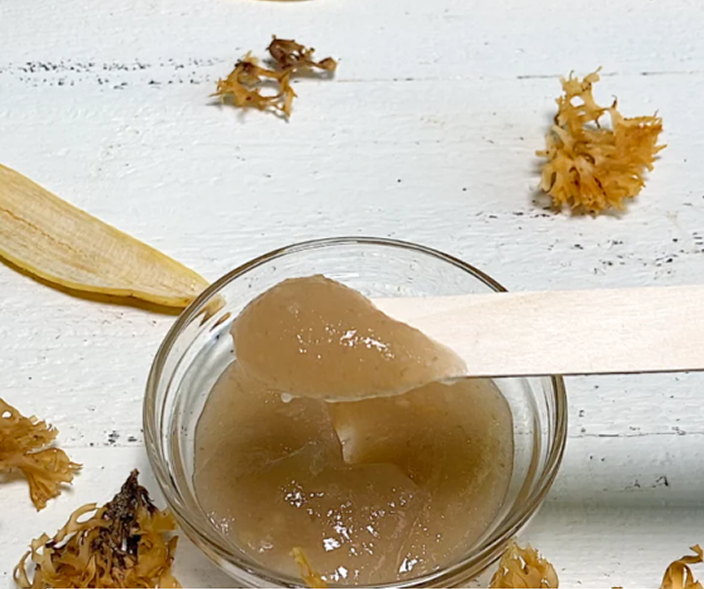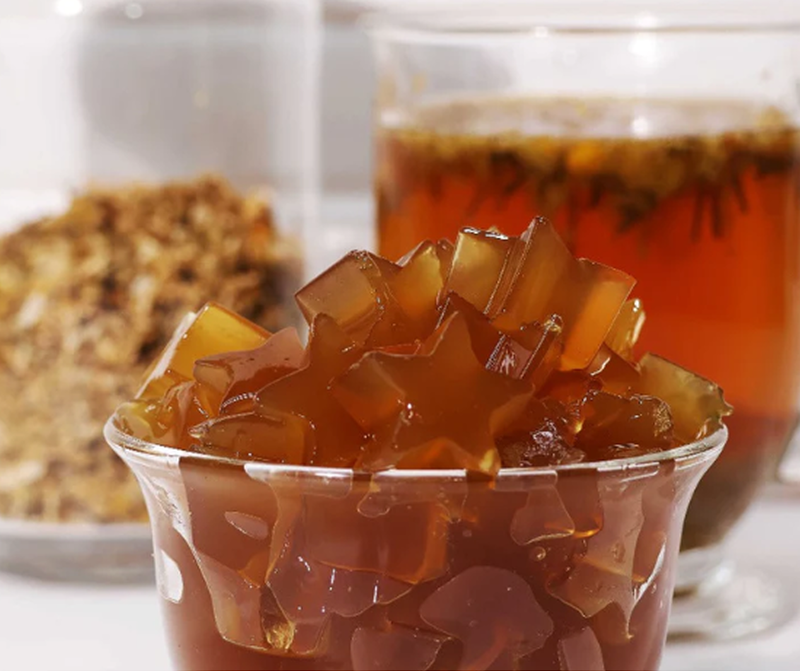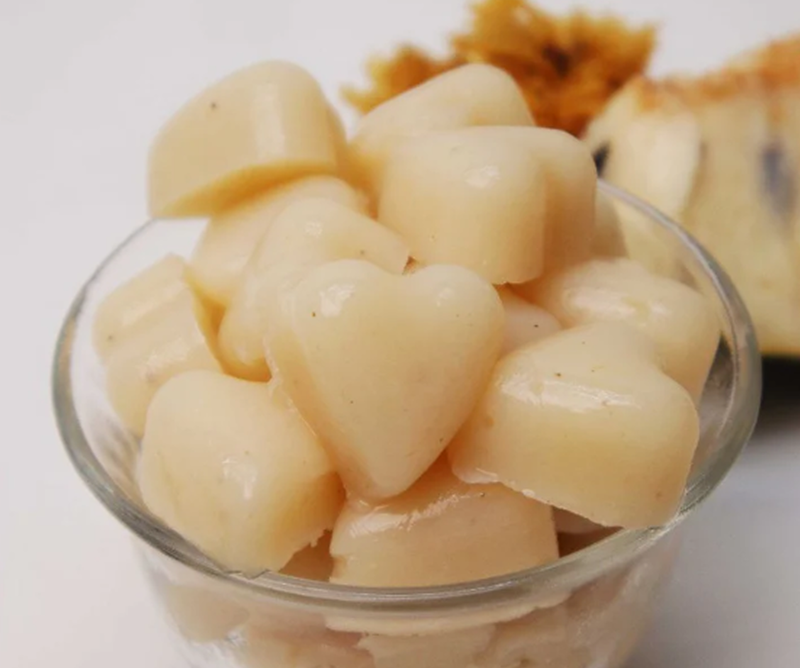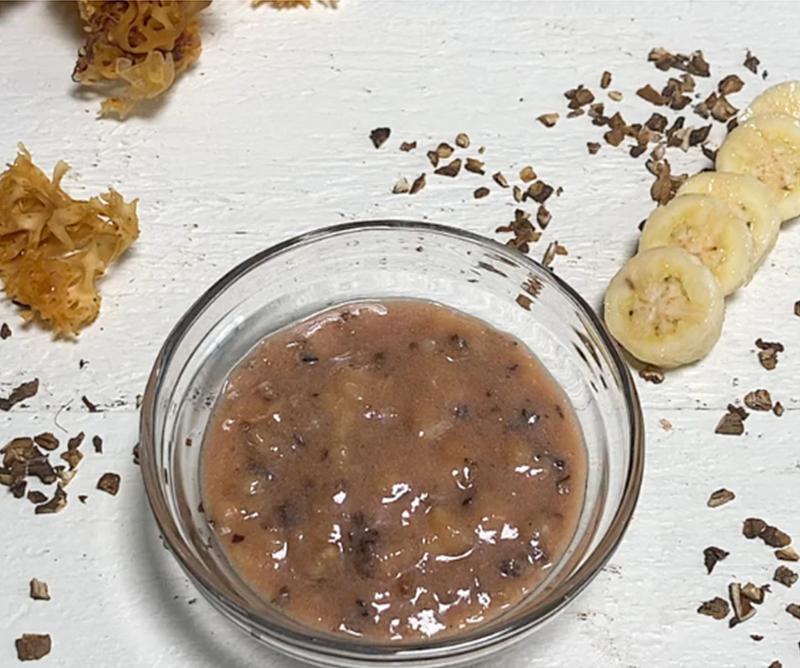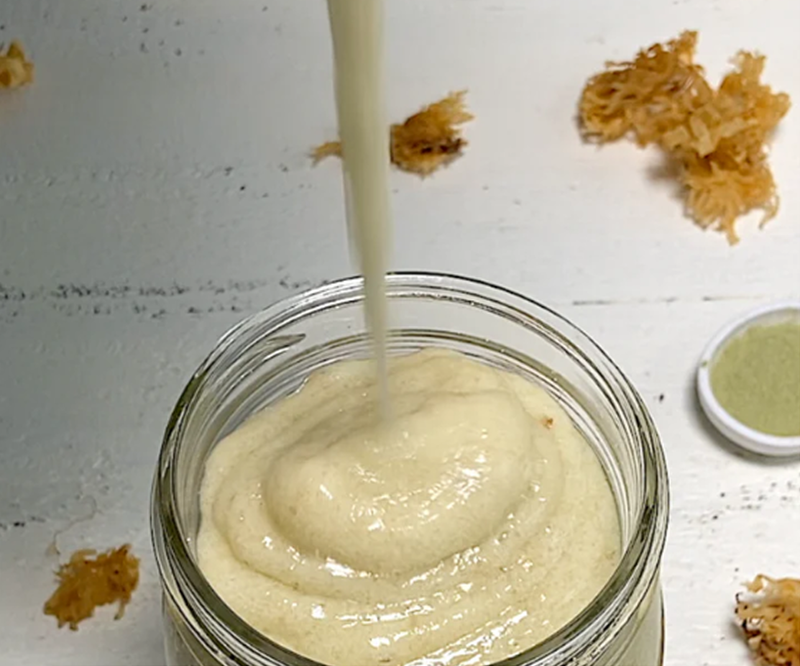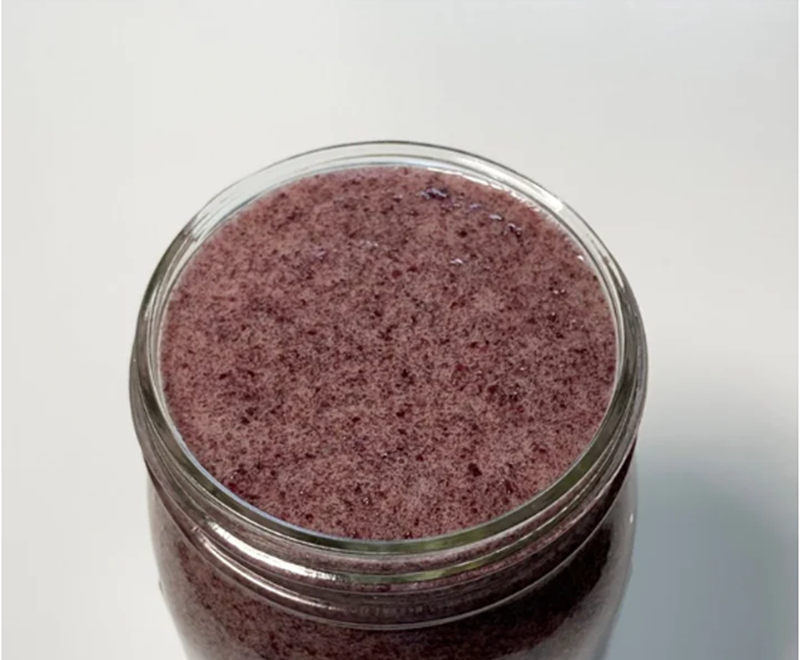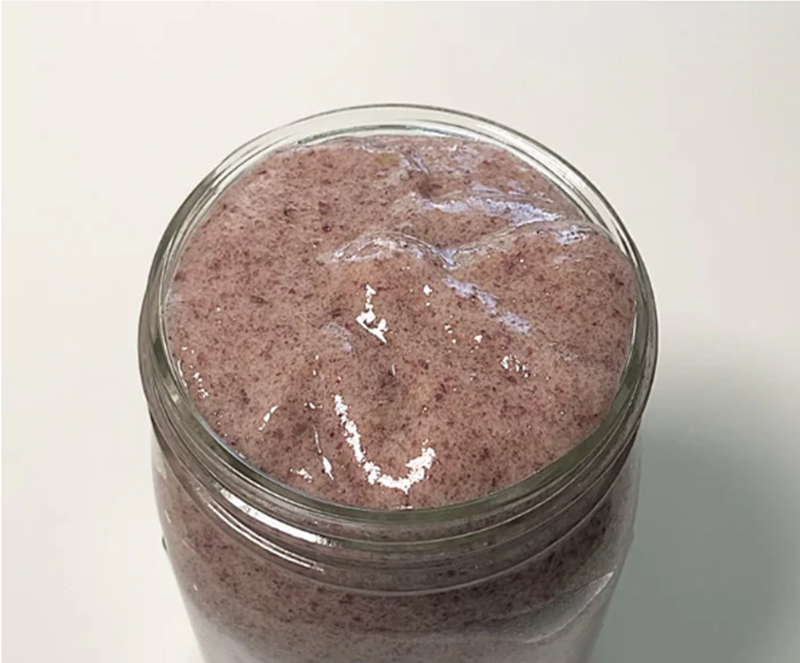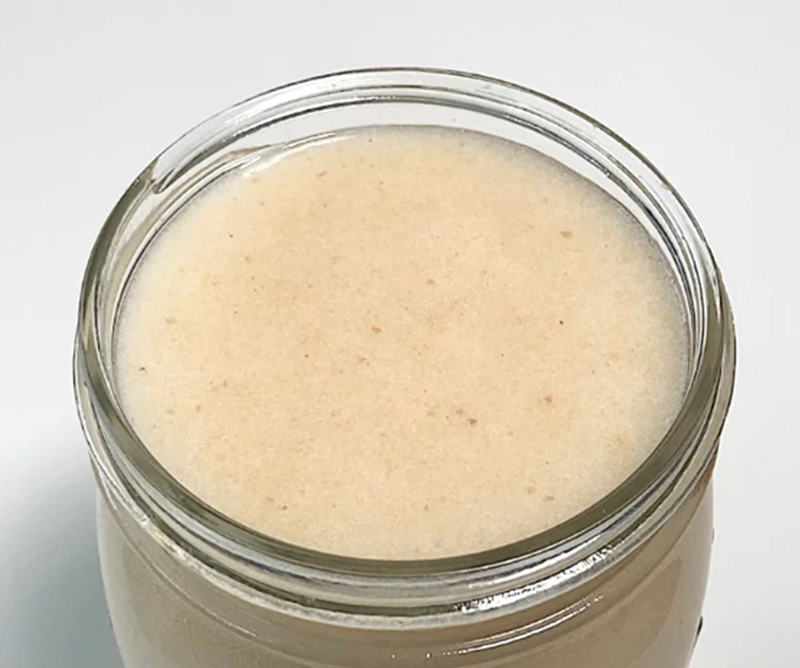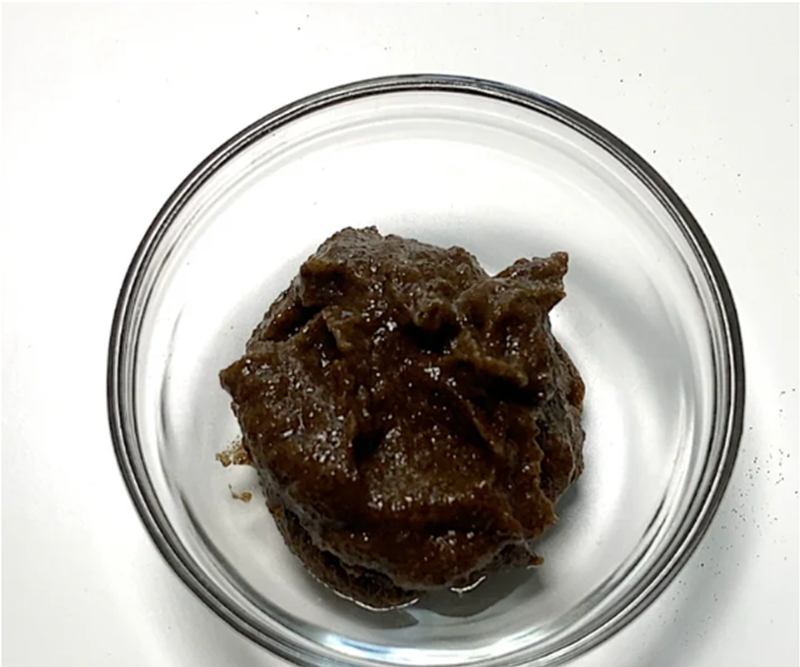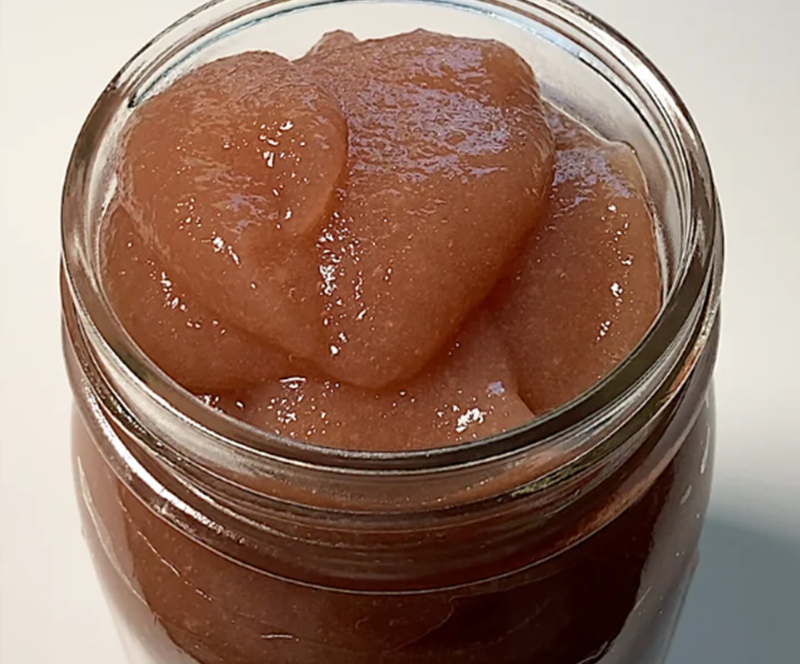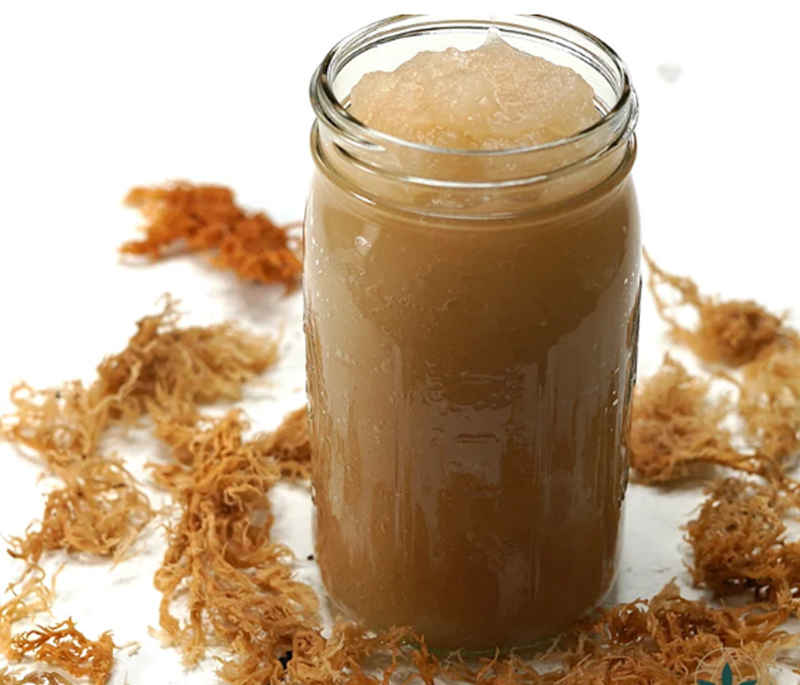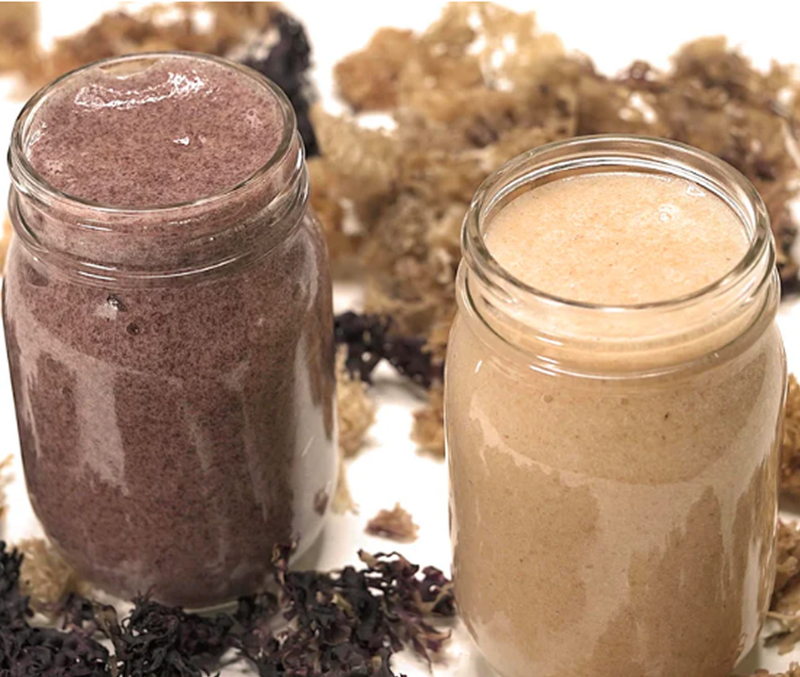

Sea Moss & Bladderwrack
- Support already healthy cardiovascular function, muscle function, and red blood cells
- Promotes healthy hair, skin, and nails
- Promotes a healthy mood and thyroid*
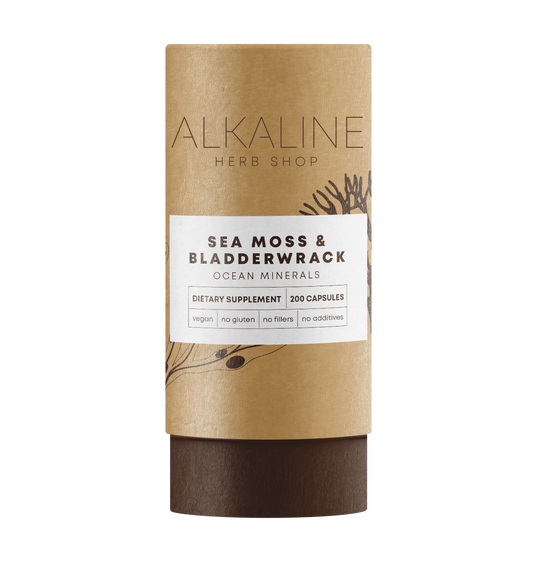
Sea Moss & Bladderwrack Supplement 200 Capsules
Sea Moss, Burdock Root, & Bladderwrack Supplement 90 Capsules
- Supports already healthy cardiovascular function, muscle function, and red blood cells
- Promotes healthy hair, skin, and nails
- Promotes a healthy mood and thyroid
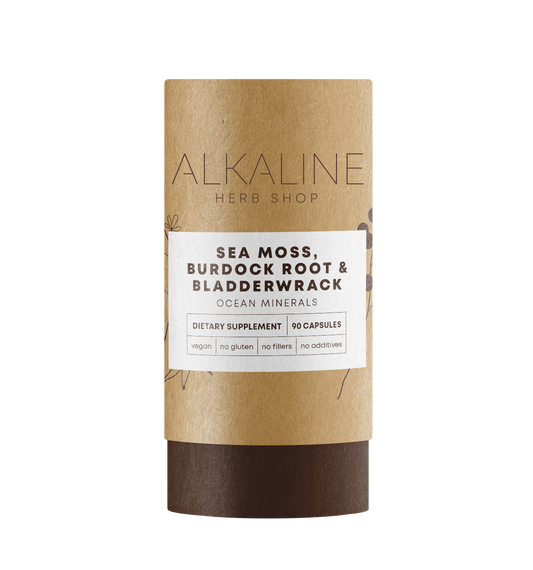
Sea Moss, Burdock Root & Bladderwrack Supplement 90 Cap...
Sea Moss Supplement
- Promotes healthy hair, skin, and nails
- Supports healthy iron levels
- Supports a healthy thyroid
- Supports healthy red blood cells and cell formation
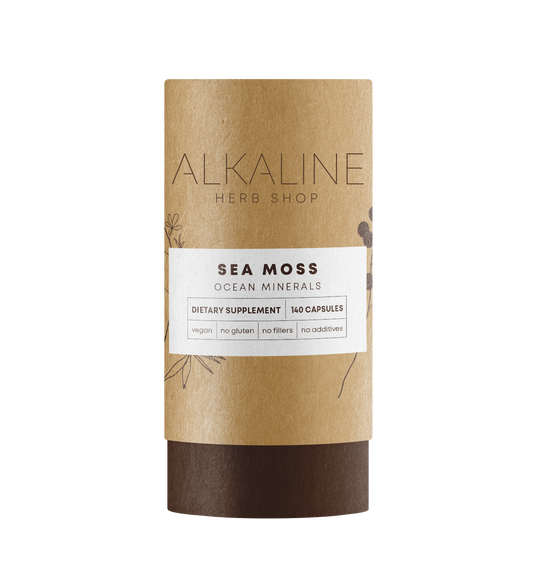
Sea Moss Supplement 140 Capsules
Sea Moss, Lavender and Soursop Soap
- Made with natural ingredients, this soap cleanses, refreshes, and soothes, promoting soft, healthy skin. Suitable for all skin types.
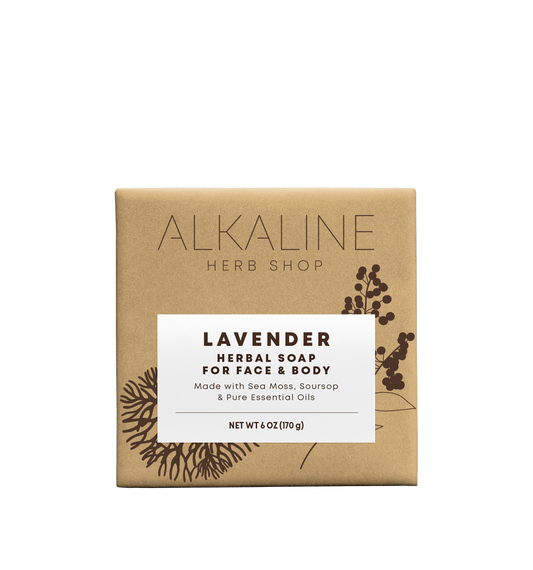
Sea Moss, Soursop, & Lavender Soap
Sea Moss & Bladderwrack 90 Capsules
Sea Moss & Moringa Supplement 90 Capsules
Raw Chondrus Crispus Sea Moss Purple & Gold 4 OZ (Irish Sea Moss)
- Promotes healthy hair, skin, and nails
- Supports a healthy thyroid
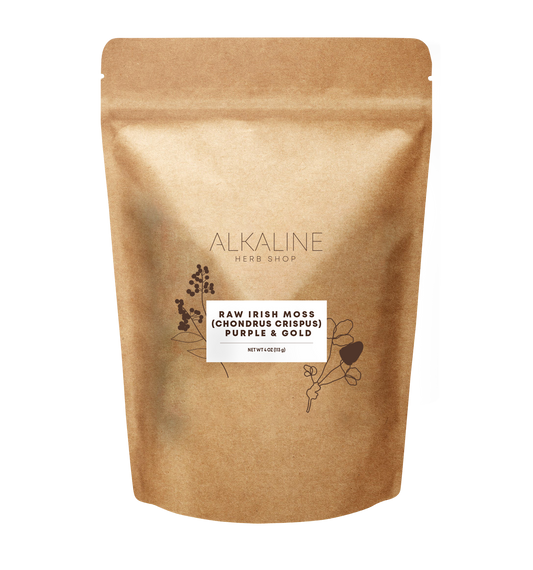
Raw Chondrus Crispus Sea Moss Purple & Gold 4 OZ (Irish...
Sea Moss, Sarsaparilla, & Lemongrass Soap
Sea Moss, Burdock Root, Eucalyptus, & Spearmint Soap
Raw Chondrus Crispus Sea Moss Gold 4 OZ (Irish Sea Moss)
Scrolling through social media lately, you've probably spotted fans of sea moss sharing its benefits for everything from haircare to smoothies. But is there any truth to the claims that it clears up acne? Let's look at what sea moss actually does for your skin and whether it deserves a place in your natural skincare lineup.
The sea moss we’re focused on is wildcrafted Chondrus crispus, a type of red algae that thrives along the Atlantic coastlines where cold, mineral-rich waters wash over it. The finest Chondrus crispus grows in pristine conditions, absorbing an impressive array of minerals directly from the ocean. We source only this premium wildcrafted variety. Growing in mineral-dense waters, our sea moss draws its rich nutrients from the ocean floor and surrounding rocks, making it one of the most potent and pure forms available.
What makes sea moss interesting for skin health is its nutrient profile.* It contains:
-
Zinc – supports balanced oil production and the skin’s natural defense processes*
-
Vitamin B3 (niacinamide) – helps support reduced surface oil and contributes to smoother, clearer-looking skin*
-
Vitamin C – supports collagen formation and helps improve the look of post-blemish marks*
-
Magnesium & Calcium – support a healthy moisture barrier, which helps keep skin resilient against everyday stressors*
These nutrients are essential for skin health, which explains why sea moss has started to attract attention as a potential acne remedy.
Potential Benefits of Sea Moss for Acne

Just as there are numerous potential triggers for acne, so there are many different ways in which sea moss might help soothe and repair affected skin.
May Reduce Inflammation
Breakout-prone skin often looks red or irritated, which are visible signs of inflammation. Zinc supports the skin’s natural defense and repair processes, while vitamin B3 (niacinamide) helps calm the look of redness and contributes to barrier strength.* Vitamin C adds antioxidant protection, helping defend against oxidative stress that can worsen the appearance of inflamed blemishes.*
May Balance Oil
Excess oil can make pores more likely to become clogged. Zinc and vitamin B3 (niacinamide) support the skin’s natural regulation of sebum, helping maintain balanced oil levels.* This balance reduces the conditions that may contribute to breakout formation, without leaving skin overly dry.*
May Support Skin Barrier
Harsh acne routines can damage the skin barrier, leaving it vulnerable to irritation. Magnesium and calcium in sea moss may support barrier strength and hydration, helping skin stay resilient and comfortable even when exposed to daily stressors.* A stronger barrier can indirectly support breakout-prone skin by reducing external aggravation.*
May Promote Post-Blemish Recovery
After blemishes fade, skin often shows marks or uneven tone. Vitamin C in sea moss may support collagen formation and provide antioxidant support, helping skin appear smoother and more even-toned over time.* This makes it especially useful for post-blemish recovery.*
What Does Science Say?
We’re still lacking peer-reviewed studies that specifically illustrate the effects of sea moss on acne. Most evidence is either:
- Based on the known benefits of individual nutrients found in sea moss, or
- Anecdotal reports from users
In other words, we have proof of the benefits of certain nutrients in sea moss for managing acne, but nothing yet that implies sea moss itself is responsible.
For example, zinc's effectiveness against acne is well-documented. A 2020 review found that zinc supplements and topical applications can reduce acne severity by fighting inflammation and bacteria.* Since sea moss contains zinc, this might explain some of its reported benefits.
But here's the catch. We don't know if the amounts of these nutrients in sea moss are high enough to make a significant difference, or if they're as bioavailable as their isolated forms.
What are Potential Side Effects to Be Wary Of?
Iodine Content
While iodine is essential for thyroid function, excess amounts can trigger or worsen thyroid disorders in susceptible individuals.* Even those with healthy thyroids should be mindful of how much sea moss they consume, especially if they already eat iodine-rich foods like seaweed and seafood.
Allergic Reactions
Marine allergies are among the most common food sensitivities, affecting up to 2% of adults . Sea moss allergies can manifest as skin rashes, itching, hives, or even more serious symptoms such as breathing difficulty. Always perform a patch test before applying sea moss to your face.
Pore-Clogging Potential
The carrageenan in sea moss forms a gel-like matrix that gives sea moss preparations their thick, slippery texture.* While this can be beneficial for dry or mature skin, it may be problematic for acne-prone individuals.* To minimize this risk, consider diluting sea moss with non-comedogenic ingredients like aloe vera or using it in rinse-off formulations rather than leave-on products.
Heavy Metal Concerns
As filter feeders, seaweeds like sea moss can absorb and concentrate heavy metals from their environment.That’s why source transparency and third-party testing are essential when choosing sea moss products. At Alkaline Herb Shop, we third-party test all our sea moss to ensure it’s clean, safe, and harvested from the purest cold waters.
How to Use Sea Moss for Acne

If you want to give sea moss a try, here are some of the most common methods:
Internal Use:
-
Add 1-2 teaspoons of sea moss gel to smoothies, teas, or juices daily
-
Take sea moss capsules following package directions
Topical Applications:
- Sea moss face mask: Apply a thin layer of gel to clean skin for 15-20 minutes, then rinse
- Sea moss soap: Use a gentle, handmade sea moss soap to cleanse your face and body. It’s suitable for all skin types.*
- Sea moss face and body butter: Lock in moisture after your shower with a natural sea moss-infused body butter.
Start with a small amount to see how your skin responds. Consistency is key, give it at least 3-4 weeks before deciding if it's working for you.
Start Your Sea Moss Journey Now
Sea moss might help with acne thanks to its anti-inflammatory properties and skin-supporting nutrients.* However, it's not likely to be a miracle cure on its own.
If you're dealing with severe acne, talk to a dermatologist before trying sea moss or any natural remedy. They can help you develop a comprehensive approach that addresses the root causes of your breakouts.
Sea moss from cold Atlantic waters, like the Chondrus crispus variety offered by Alkaline Herb Shop, provides the most nutrient-dense option if you decide to try this ocean remedy for yourself.*
FAQs
Does sea moss help with acne?
Sea moss contains nutrients like zinc which is known to support skin health and may help reduce acne.*
How do I use sea moss for acne?
You can use sea moss both internally and externally. Internally, it’s often consumed as a supplement or a gel mixed into smoothies. Topically, you can apply sea moss gel as a face mask, but always patch test first to check for reactions.
Is sea moss better taken as a supplement or applied to the skin?
Both methods may offer potential benefits.* Consuming sea moss may support skin health from within thanks to its minerals, while topical use may soothe inflammation and provide hydration.* Some people combine both for better results.
How long does it take for sea moss to improve acne?
Results vary widely. Some people see changes in a few weeks, while others notice little difference. Factors like diet, skin type, and other skincare habits all play a role. Consistency is key, but don’t expect overnight miracles.
Does sea moss make you break out?
It’s rare, but some users report breakouts from topical sea moss use, especially if it's not rinsed off properly or if the skin reacts to its iodine content. Internally, too much iodine from overconsumption could potentially disrupt hormones, which might affect the skin.
Are there any side effects of using sea moss for skin?
Topical side effects may include irritation, redness, or allergic reaction.*Always patch tests. Internally, overconsumption can lead to too much iodine, which may impact thyroid health.* Stick to recommended dosages and consult a healthcare provider if unsure.
What’s the best sea moss for acne?
Wildcrafted sea moss (often Chondrus crispus) is generally preferred over pool-grown varieties due to its richer mineral content. Look for raw sea moss to make gel or capsules without additives for best results.
Can sea moss replace my acne treatment?
Sea moss can be a great addition, but it shouldn’t replace proven acne treatments, especially for moderate to severe cases. Think of it as a natural supplement to a good skincare routine, not a cure-all.

Suhail Rivera
Suhail Rivera is the founder of Alkaline Herb Shop. She left a 10-year law career to pursue natural healing after struggling with stress and poor health. Inspired by Dr. Sebi’s teachings, she discovered the power of an alkaline diet and herbal remedies. She is passionate about wellness and is dedicated to helping others on their healing journeys.





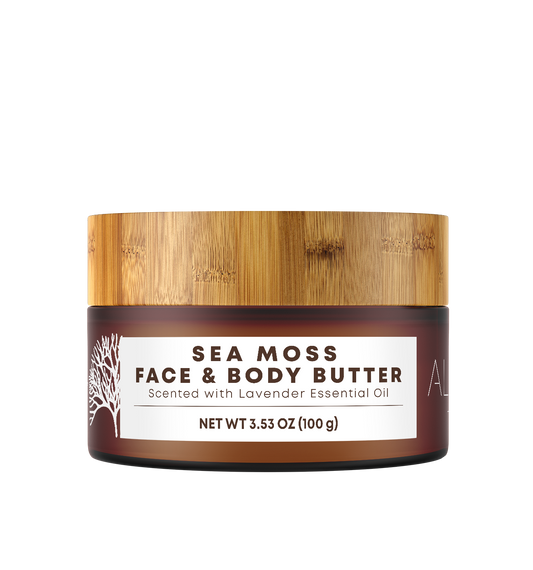
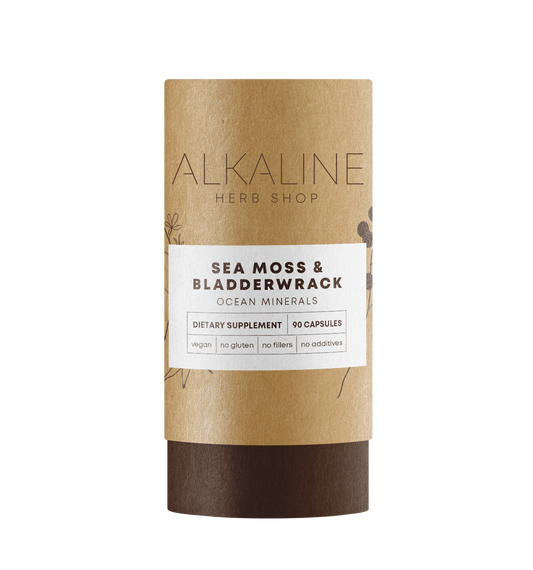
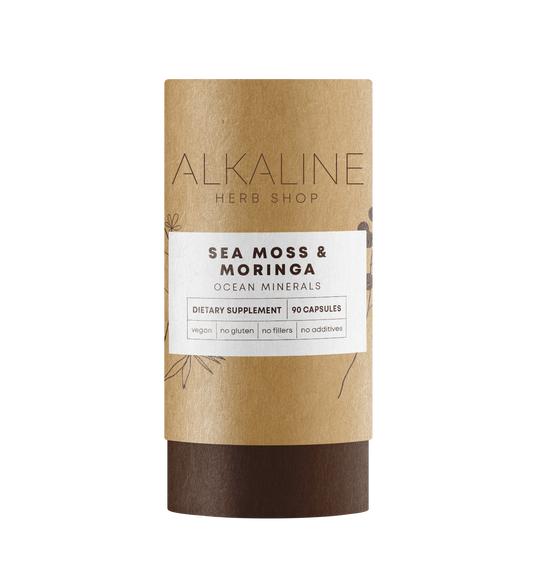
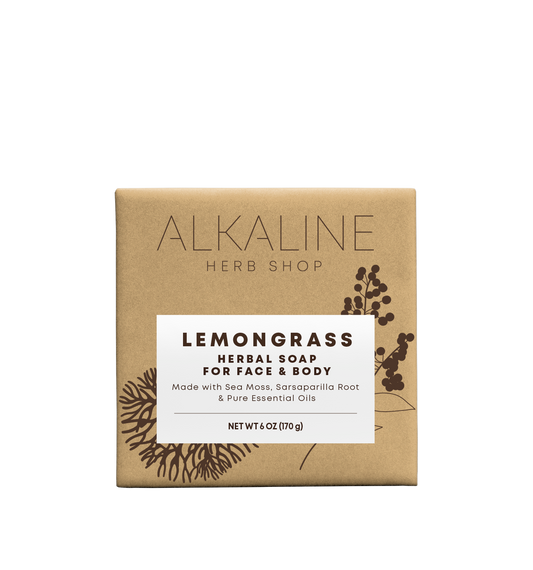
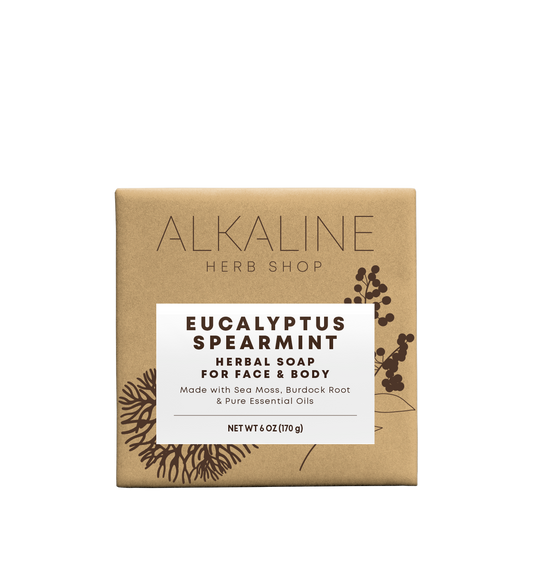
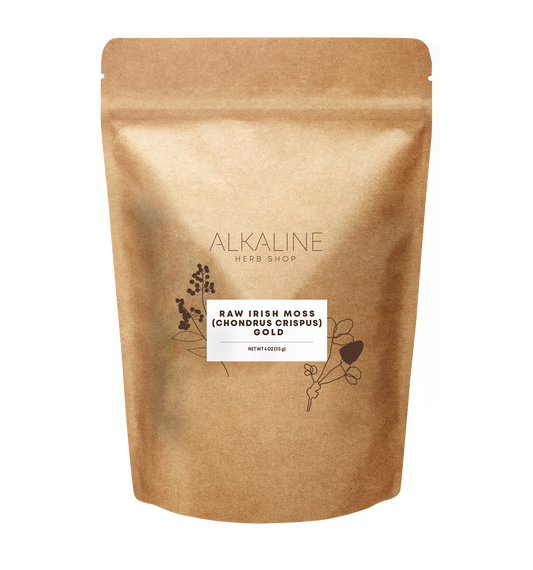
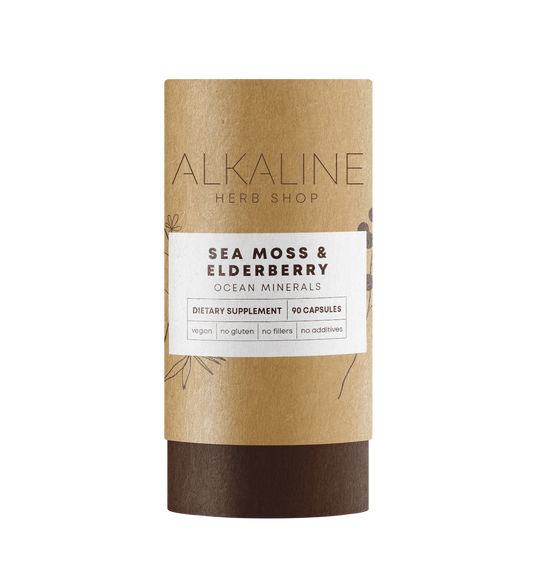
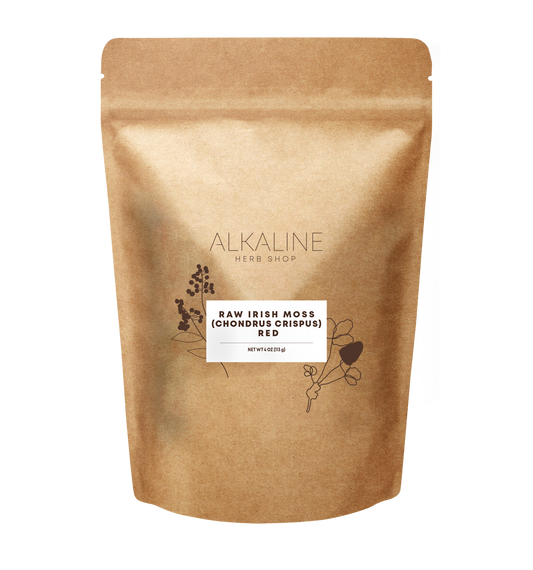
.png?v=14052428765372906161746588027) Previous Post
Previous Post
%20copy.png?v=62173825240595680121746588027)
